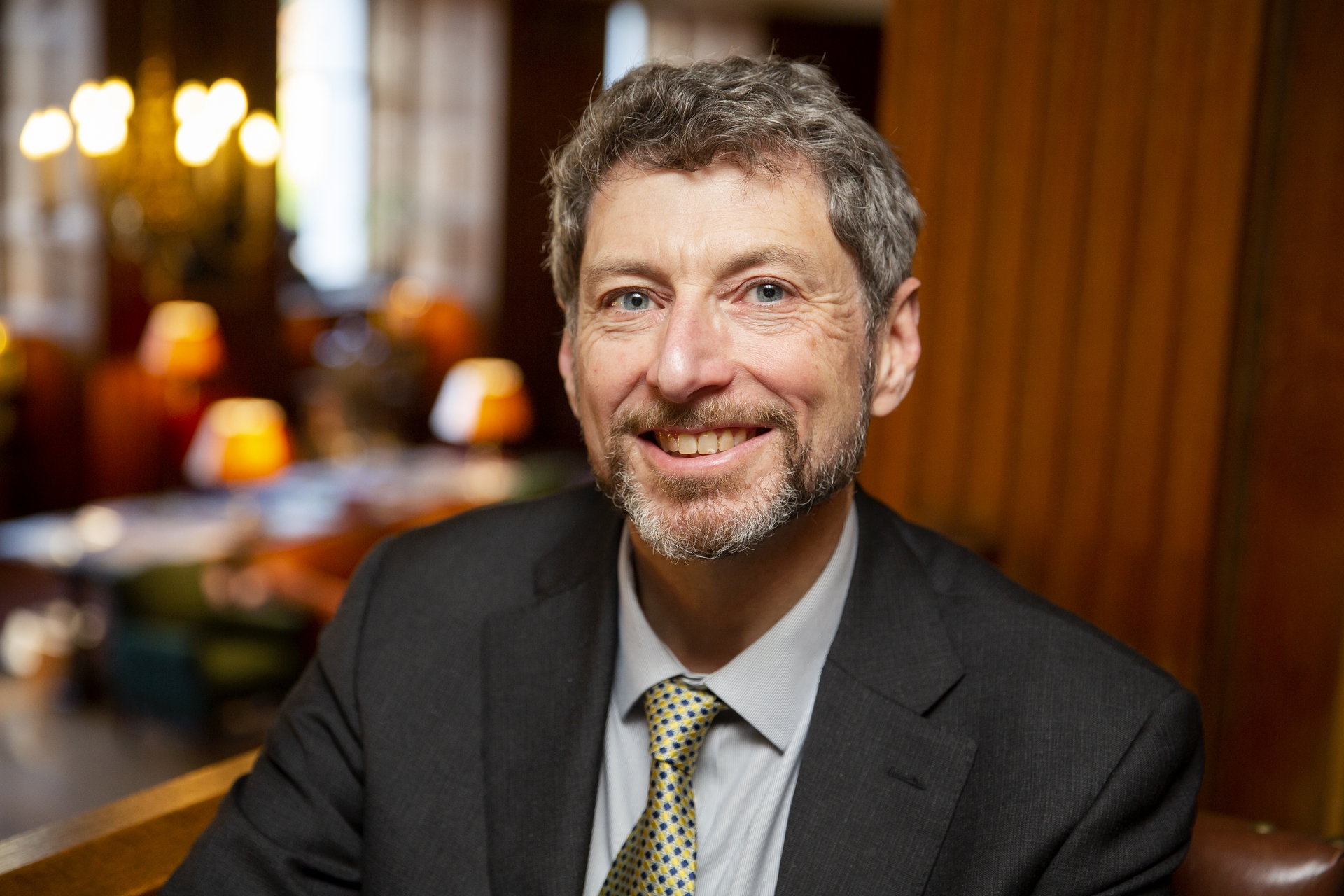‘Campus Conversations’ with Ben Hermalin: Bureaucracy, budget and belonging

Brittany Hosea-Small for UC Berkeley
August 31, 2023
Financial sustainability. Gratitude. Inclusion and belonging. Reducing bureaucracy.
These are just a few of the topics that UC Berkeley Executive Vice Chancellor and Provost Ben Hermalin covered this past Tuesday in the first Campus Conversations event of the fall semester.
“It’s a different view, in both a literal and figurative sense,” said Hermalin, when asked about his transition from vice provost for the faculty to EVCP. “This university is one of the greatest institutions out there, and having a job where you’re helping advance the mission of the university and support all the people who work in it is really satisfying — it gives meaning to my life.”
Hermalin, who joined the campus in 1988 as an assistant professor of economics, said that in his 35 years here, “I’ve only seen Berkeley get better. We are amazing in our resilience, and part of that resilience comes because we’re very innovative. We’re not wedded to the status quo. We’re always asking the question, ‘How can we improve? What can we do differently?’”
Having now been EVCP for one year, Hermalin discussed his top three priorities for the campus: financial sustainability, reducing the bureaucratic burden and a continued focus on inclusion and belonging.
“Our budgeting model isn’t one that supports or sustains our strategic needs,” said Hermalin, adding that while there has been a certain amount of budget-related anxiety for years, recognizing the challenges that the campus faces is key.
In a model where state funding is down and central campus reserves are depleted, he said, finding and implementing alternative funding is crucial to the success of the university. The Financial Sustainability Initiative, set by Hermalin, focuses on improving the efficiency and effectiveness of Berkeley’s financial operations. Berkeley is now a powerhouse of philanthropic efforts, having raised $6.7 billion through the Light the Way campaign, and more similar efforts will be crucial to a sustainable financial future.
Hermalin also wants to change the culture of bureaucracy on campus, turning members of the campus community into problem solvers instead of gatekeepers and emphasizing that each professor, staff member and student is a vital part of the team.
Another initiative, Reducing Bureaucracy, continues to focus on finding inefficiencies around campus and working to simplify processes and procedures. Hermalin raised the point that no one should suffer in silence — the campus needs to know where the pain points are. He asked that anyone with ideas for improvements bring them up so that they can be explored and resolved.
While Berkeley has long concentrated on improving diversity, Hermalin acknowledged that it isn’t happening as quickly as desired, and that there is still work to be done. His focus centers on inclusion and belonging.
“Everyone who comes here should feel a strong sense of belonging — not only that they feel like they belong, but that others see them as belonging and as being a vital part of this campus and its community,” said Hermalin. “We can’t do an excellent job of educating people without considering inclusion and belonging. You can’t do as well if you don’t feel like you belong.”
Hermalin also took time to remind those attending the virtual event about the importance of gratitude.
“When we lose sight of gratitude, when we don’t recognize gratitude in our day-to-day life, we are certainly less content, less happy, less compassionate, less collegial,” he said. “It’s very easy to lose sight of what an amazing institution Berkeley is; sometimes we lose sight of that, of how well we do and how important our jobs are. Having some gratitude and perspective about that is important.”
To close out the conversation, Hermalin challenged the campus community to channel the enthusiasm being displayed by its new students and faculty members. “It’s just amazing,” he said.